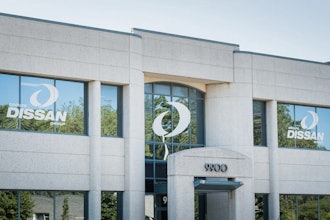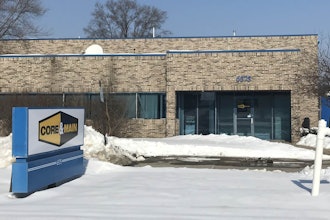
The industrial distribution segment has long been a hot spot for investment, and experts expect that heavy merger and acquisition activity will persist in the coming years. We sat down with executives from Shorehill Capital, an investment firm with deep expertise in the industrial distribution sector, to learn more about their perspective on the appeal of this sector, and why they expect dealmaking to continue.
ID: Shorehill has made several investments in industrial distribution over the years. What is it about this sector that your firm finds so appealing?
Tim Trzebiatowski: That’s correct. Over more than 30 years in private equity, the Shorehill team has invested more than $350 million in distribution companies and have helped navigate those companies through recessions, the Great Financial Crisis and COVID. We’ve built 11 distribution platforms via enhanced organic growth and over 40 add-on acquisitions. Our distribution investments include familiar names like TricorBraun, SunSource, Fortiline, Kele, Belt Power, Triad Technologies and Ascent Lifting. The Shorehill team has invested across a range of distribution models, including two-step distributors, traditional branch-based distributors and catalog distributors.
Through this experience, we have come to appreciate the compelling attributes distributors offer that we think make for good investments. Those attributes include scalable business models, high free cash flows, and multiple growth avenues including greenfields, acquisitions, new products, additional salespeople or geographic expansion. In addition, we think distributors often have complex relationships with customers and they offer valued added services that create sticky customer relationships. Finally, distributors frequently create competitive advantage through the cultivation of partnerships with suppliers. As you can gauge from my answer, we are passionate about industrial distribution and we believe it represents a compelling opportunity to partner with founders or management teams.
ID: What do you look for in a partner?
Charlie Denison: We have a saying at Shorehill that business is about people. As a result, we are very focused on creating positive, win-win outcomes for the sellers of businesses and the managers who run our businesses. Our preference is to buy from founders. That said, we are comfortable transacting with other private equity firms or a corporate seller if we believe we can add value to the business being acquired. Regardless of the owners on the other side of the transaction, we believe we have the greatest opportunity to create value when we invest alongside management teams in well-run companies that have opportunities for improvement. The ideal partner for Shorehill is a management team that is hungry, driven, receptive to input, and has a true passion for their business. Our strategy emphasizes long-term value creation, and we work side by side with our management partners to coalesce around a shared vision and future strategy for the business. We also like to partner with individuals who are excited about the prospects of their business and desire to invest their capital alongside ours. To that end, we encourage and facilitate ownership across a broad pool of key managers. Today, we have 190 management shareholders invested alongside Shorehill. Importantly, our philosophy of “we win together” means that shareholders in our companies invest in equity securities that have the same economic terms. Our approach is one of true partnership.
Lastly, we have experience accommodating a variety of business owners’ post-closing desires. We understand that some owners are looking to move on to other endeavors, while others are eager to find a partner to jointly pursue a compelling growth strategy. In every scenario, we are comfortable managing the transition. Our portfolio reflects that. The owners at Ascent Lifting had a mix of equity owners looking to exit and other individuals very eager to remain and pursue additional growth. The ownership team at Flexpak was fully engaged and interested in the pursuit of growth in partnership with Shorehill. The owner at Functional Devices Inc. wanted to transition to a board role while his leadership team remained in place and became significant equity investors alongside us. Each situation is unique and we work to create the optimal outcome for all involved. Our best partnerships are those that center around teamwork, collaboration, open communication, a passion for growing a business and a desire to beat the competition.
ID: What tips might you offer a business who is looking for an investor? How can they go about finding the right fit?
Robert Jackson: We recommend a business owner seeks out a partner who shares your values, respects the history of the business, cares about the company’s culture and can add value to the business’ success through their insights, network and capital. The chosen investor should have a true partnership approach, grounded in trust, open communication, collaboration and shared success.
Additionally, the chosen investor should have the resources to help position a business for future success, including additional capital to support post-transaction needs, analytical support for operational improvements, organic growth initiatives or M&A, and access to an advisory network that provides advice and counsel to your leadership team on opportunities and challenges they are facing. As it relates to experience, you want a seasoned investor who is not learning on the job. They ought to have a track record of building middle-market distribution companies through multiple economic cycles.
We would encourage business owners to call references related to a new investor, reaching out to people who they have bought businesses from to hear what they say about how the investor conducted itself before, during and after the transaction. An investor that gets high marks from references will most likely to be the best steward of your business’ legacy.
With respect to how do they go about finding the right fit, we recommend spending time with the chosen investor outside of the diligence sessions and facility tours. Sellers and management teams really need to understand before a transaction closes whether or not they can work productively with an investor. As Charlie said, we have a philosophy that business is about people. If you don’t like, respect or trust your investor, it is going to be hard to have a successful partnership. We believe Shorehill exhibits the traits a seller would want in an investor. Our approach has been recognized by those we have done business with through our recognition on Inc. magazine’s list of top private equity firms for founders and entrepreneurs each year since 2019.
ID: What type of continued M&A activity do you expect to see in this industry in 2024 and 2025? Do you see the pace slowing down at any point?
Tim Trzebiatowski: As we look at the overall industrial landscape, there are multiple competing themes in the market today, and it is unclear how these themes will impact M&A activity in 2024 and 2025. On the positive side, there is an abundance of capital, both private equity and debt, looking to support change of ownership transactions overall and in the distribution sector specifically. Additionally strategic buyers are aggressively looking to complete add-on acquisitions to support lagging organic growth trends.
Lastly, while there remains uncertainty on the direction of the economy, overall demand trends seem to be holding up, which further supports a strong M&A market. On the negative side, the cost of debt financing is up relative to prior years, inflation seems to be persistent and labor markets are still very tight. Given this mixed picture, we expect M&A activity to be resilient amongst industrial distributors, but sellers may see lower valuations and more structured transactions as compared to cash up front. Additionally, transaction processes will also likely take longer and may result in binary outcomes given differing buyer and seller expectations with respect to value and process timing.























